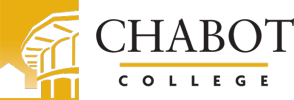
Public Health Science
This program map from the 2024-2025 catalog year represents one possible pathway to complete this program. Your pathway may vary depending on your transfer plans and also previous college credit, including AP Test scores, concurrent enrollment courses and high school articulated courses.
I'm ready to get started. What do I do next?
- Review this program map to get an overview of the required courses
- Meet with a counselor to develop your customized student education plan www.chabotcollege.edu/counseling
- Use DegreeWorks, an online student education planning tool, to track your progress toward graduation www.chabotcollege.edu / admissions / degreeworks
Interested in impacting the health of your community by promoting wellness, preventing disease, and treating illness? Following this program map will provide you with the courses needed for further study in Public Health Sciences and to apply to professional programs in the allied health fields such as nursing, respiratory therapy, and sonography. You will learn the basics of biology and chemistry as a foundation for studying the structure and function of the body in health and disease, for understanding how the body responds to infections, and for realizing what makes a healthy community. Follow the coursework outlined for this degree if you want to transfer to a CSU program in Public Health Science.
What can I do with this major?
Learning and Career Pathway
- Health and Wellness